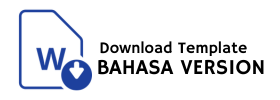Dynamics of Consumer Boycotts: Exploring the Interplay of Expressive and Instrumental Factors
DOI:
https://doi.org/10.38035/dit.v1i2.309Keywords:
Consumer Behavior, Product Boycotts, Expressive Factors, Instrumental FactorsAbstract
This research explores consumer participation in product boycotts in Indonesia, focusing on the interplay between expressive and instrumental factors over time. Through a systematic literature review, this study reveals that emotional responses and personal identity trigger boycotts, serving as expressions of solidarity or protests against conflicting values. As time progresses, practical considerations, such as boycott effectiveness, become dominant motivators, following the "hot" to "cold" phase transition. Social media plays a critical role in strengthening boycott movements and facilitating discussions that impact this transition. Implications extend to businesses, activists, policymakers, and academics. Companies should develop responsive communication strategies addressing both expressive and instrumental factors. Activists can leverage technology to enhance campaign impact, and policymakers can use insights to encourage responsible business practices. In summary, this research highlights multidimensional boycott dynamics influenced by expressive and instrumental factors, emphasizing the pivotal role of social media and its implications for various stakeholders.
References
Ajzen, I. (1991). The theory of planned behavior. Organizational Behavior and Human Decision Processes, 50(2), 179-211. DOI
Brown, T. J., & Dacin, P. A. (1997). The Company and the Product: Corporate Associations and Consumer Product Responses. Journal of Marketing, 61(1), 68–84.
Carrigan, M., & Attalla, A. (2001). The myth of the ethical consumer—do ethics matter in purchase behaviour? Journal of Consumer Marketing, 18(7), 560–578.
Cherrier, H., & Murray, J. B. (2007). Carrying the Weight of the World? How Broadcast News Portrays Weight-Related Issues. Health Communication, 22(2), 143–151. DOI
D'Amico, D. J., & LaBahn, D. W. (2016). The devil you know: The effect of brand recognition and product ratings on consumer choice. Journal of Brand Management, 23(3), 224–244.
Giesler, M., & Veresiu, E. (2014). Creating the Responsible Consumer: Moralistic Governance Regimes and Consumer Subjectivity. Journal of Consumer Research, 41(3), 840–857. DOI
Hofmann, S. (2011). Anti-consumption as a means to save jobs. European Journal of Marketing, 45(11/12), 1702–1714.
Hofmann, S. (2013a). Are boycott motives rationalizations? Journal of Consumer Behaviour, 12(3), 214–222.
Hofmann, S. (2013b). Home country bias in the moral obligation to boycott offshoring companies. Journal of Marketing Theory and Practice, 21(4), 371–388.
Kim, C., Yan, X., & Park, S. (2023). Teori Perilaku Terencana dan Perbedaan Gender: Studi tentang Kampanye Boikot Konsumen Korea Selatan terhadap Perusahaan Jepang. International Journal of Emerging Markets.
Klein, J., & Dawar, N. (2004). Corporate social responsibility and consumers’ attributions and brand evaluations in a product–harm crisis. International Journal of Research in Marketing, 21(3), 203–217.
Klein, J. G., Smith, N. C., & John, A. (2004). Why we boycott: Consumer motivations for boycott participation. Journal of Marketing, 68(3), 92–109.
Kozinets, R. V., & Handelman, J. M. (2004). Adversaries of consumption: Consumer movements, activism, and ideology. Journal of Consumer Research, 31(3), 691-704. DOI
Lasarov, W., Hofmann, S., & Orth, U. (2023). Vanishing Boycott Impetus: Why and How Consumer Participation in a Boycott Decreases Over Time. Journal of Business Ethics, 182, 1129–1154. DOI
Lee, K., & Shin, H. (2010). Consumers’ responses to CSR activities: The linkage between increased awareness and purchase intention. Public Relations Review, 36(2), 193–195.
Peloza, J., & Shang, J. (2011). How Can Corporate Social Responsibility Activities Create Value for Stakeholders? A Systematic Review. Journal of the Academy of Marketing Science, 39(1), 117–135.
Pratiwi, B., Jannah, K. M., Saraswati, R., Raihanah, S., & Suhud, U. (2021). Analisis Pengaruh Intention to Boycott pada Konsumen Produk Perancis di Indonesia. Jurnal Bisnis, Manajemen, dan Keuangan, 2(1), 257.
Rahmawati, S., Ali, S., & Subagja, G. (2021). Pengaruh Nilai Religiusitas dan Pengetahuan Produk terhadap Keputusan Boikot Produk KFC (Studi pada Konsumen Muslim Bandar Lampung). Universitas Lampung.
Rauschnabel, P. A., Ahuvia, A. C., & Krey, N. (2016). Virtual reality marketing: Examining drivers and barriers to adoption. Journal of Business Research, 69(11), 3047–3052.
Sen, S., Gürhan-Canli, Z., & Morwitz, V. (2001). Withholding consumption: A social dilemma perspective on consumer boycotts. Journal of Consumer Research, 28(3), 399–417.
Peattie, S., & Peattie, S. (2003). Ready to Fly Solo? Reducing Social Dilemmas for Sustainable Consumption. In A. G. Woodside, J. N. Sheth, & P. M. D. Wright (Eds.), Consumer-Generated Marketing: Managing a Powerful Brand Influencer (pp. 293–304). Routledge.
Torres, A., Bijmolt, T. H. A., Tribó, J. A., & Verhoef, P. (2012). Generating global brand equity through corporate social responsibility to key stakeholders. International Journal of Research in Marketing, 29(1), 13–24.
Wang, D., & Yu, C. (2017). The effect of social media marketing content on consumer engagement: Evidence from Facebook. Journal of Interactive Advertising, 17(1), 27–41.
Wu, Y., Zhang, K., & Xie, J. (2020). Bad greenwashing, good greenwashing: Corporate social responsibility and information transparency. Management Science, 66(7), 3095–3112.
Yang, J., Basile, K., & Letourneau, O. (2020). The impact of social media platform selection on effectively communicating about corporate social responsibility. Journal of Marketing Communications, 26(1), 65–87.
Downloads
Published
How to Cite
Issue
Section
License
Copyright (c) 2024 Istianingsih Istianingsih, Robertus Suraji, Marrisa Haque, Muhammad Yasir

This work is licensed under a Creative Commons Attribution 4.0 International License.
Copyright :
Authors who publish their manuscripts in this journal agree to the following conditions:
- Copyright in each article belongs to the author.
- The author acknowledges that the DIT has the right to be the first to publish under a Creative Commons Attribution 4.0 International license (Attribution 4.0 International CC BY 4.0).
- Authors can submit articles separately, arrange the non-exclusive distribution of manuscripts that have been published in this journal to other versions (for example, sent to the author's institutional repository, publication in a book, etc.), by acknowledging that the manuscript has been published for the first time at DIT.


























